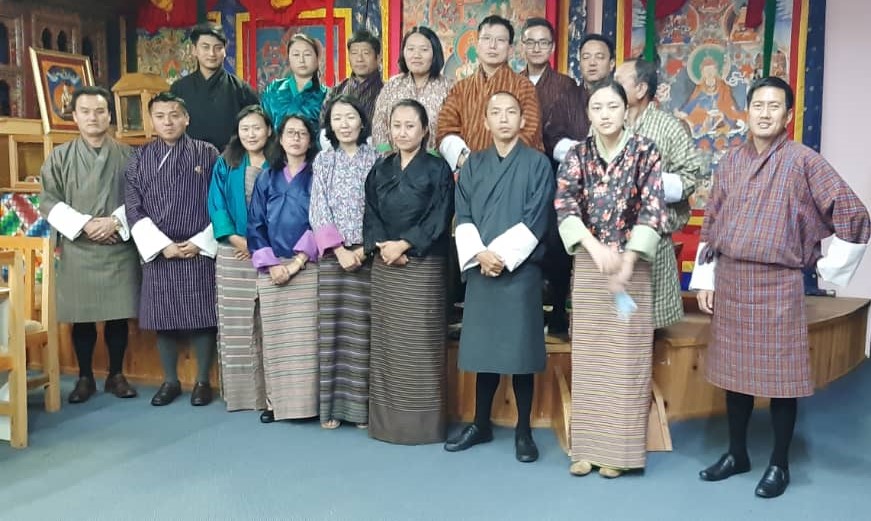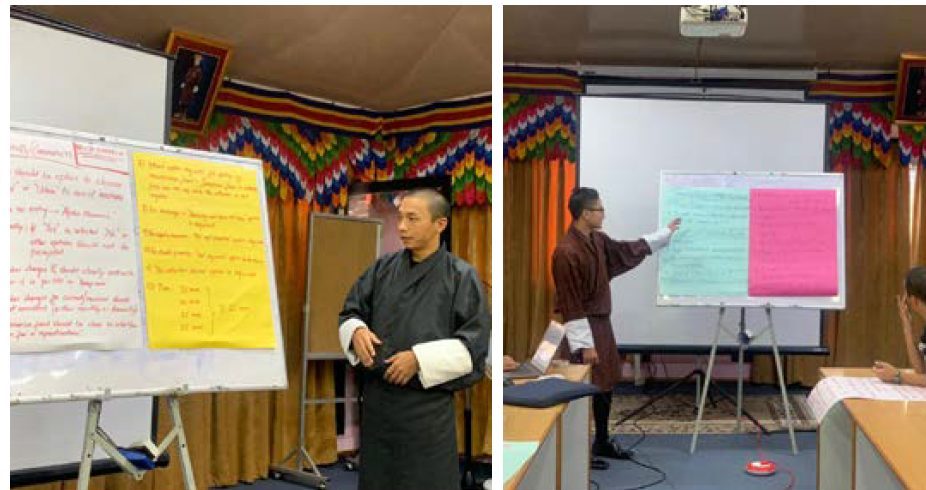Despite being abundant in water, Bhutan faces challenges in distributing potable water to its citizens. An Orange Knowledge training programme supported by The Hague Academy aims to provide government officials with the water governance tools to do so. In this article, we take a look into the ins- and outs of how The Hague Academy supported local officials in Bhutan.
Water Management in Bhutan
Bhutan has one of the highest per capita availability of water resources in the world, but its people still face regular water shortages. In 2016, the Royal Centre for Disease Control reported that only 17 percent of stream water sources and 28 percent of spring water sources were safe to drink.
The Bhutanese Ministry of Works and Human Settlement (MoWHS) was appointed by the national government to manage the country’s Water Flagship Programme. Their mandate is to improve water management in Bhutan through identifying and analysing the factors that hamper good water governance in the country and collaborating with stakeholders to address them.
The Importance of Good Governance
The discrepancy between the abundance of its water resources and the portion of these that are safe to drink has various sides to it. In 2017, the Bhutanese Royal Audit Authority found that about 34 percent of potable water is lost along the distribution networks, due in large part to illegal tapping and other diversions of water sources, but also due to poor regulation in its system.
While the MoWHS’s mandate is to deal with the technical aspects of water management and distribution primarily, their mandate also requires establishing clear policies to govern their water distribution network. As one participant from the programme describes: “The staff of the ministry did not have a lot of expertise in designing and implementing policies that guide institutional set-ups and the complex, multi-levelled and integrated water mechanisms and processes.”
In order to fill this ‘governance skill gap’, the ministry staff participated in the training organised by the Hague Academy to enhance their knowledge and skills on good water governance, along with learning best practices from the more technical aspects of water management.
Lessons Learnt
Participants found that the practical knowledge acquired throughout the learning experience was highly useful. From tools to engage different stakeholders in water governance processes to the analysis of the governance ‘gaps’ in water policy design and implementation, participants were able to apply these learnings directly in their context.
The training also introduced relevant topics such as the public policy cycle, institutional water cooperation, irrigation and drinking water services, and the interlinkages between climate change, food security and water management. According to participants, the main lessons they took away were the importance of inclusion in all the steps of the policy cycle and looking at water management from an intersectoral, multilevel perspective.
All in all, as expressed by one of the participants, “we also recognised how a sound water administration looks like and how it can help us in achieving our targets.”
Taking Lessons Home
As the programme came to a close, participants focused their attention on the importance of data and a science-based approach for effective water planning. A reliable data baseline is crucial to monitor and evaluate the impact of the ongoing water management programme. As a final component of the training programme, participants discussed data collection methodologies and developed, tested and evaluated a questionnaire to collect relevant data from their local community.
With the tools and knowledge needed to carry out their work, the participants from the MoWHS aim to provide a steady supply of potable water to every house in Bhutan within the coming few years.
Are you interested in learning more about how water resources and services can be managed and allocated in an efficient and equitable way? Make sure to sign up for our Multilevel Water Governance course, or request a customised training for your organisation.
The ‘Restructuring the Governance & Management of Water in Bhutan’ programme was funded by the Dutch Ministry of Foreign Affairs through the Orange Knowledge Programme. This training was delivered by the Hague Academy to the Ministry of Works and Human Settlement in Bhutan from 2020 to 2021, with the aim to help build the capacity of the MoWHS to carry out its mandate. The programme was managed by Dayana Al Alam, programme manager and trainer at The Hague Academy for Local Governance.
Related courses
We offer a diversity of courses throughout the year. Here are several other courses you might like.



